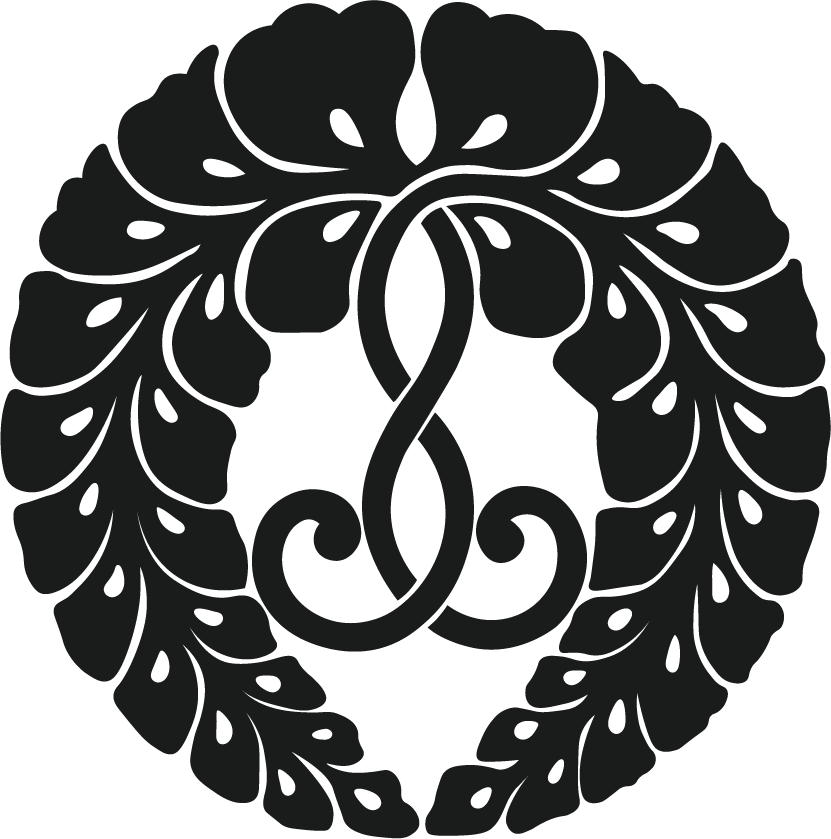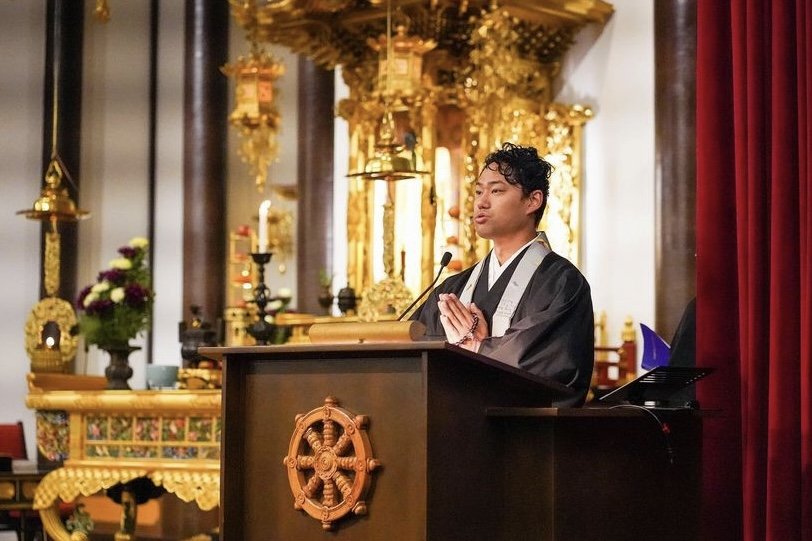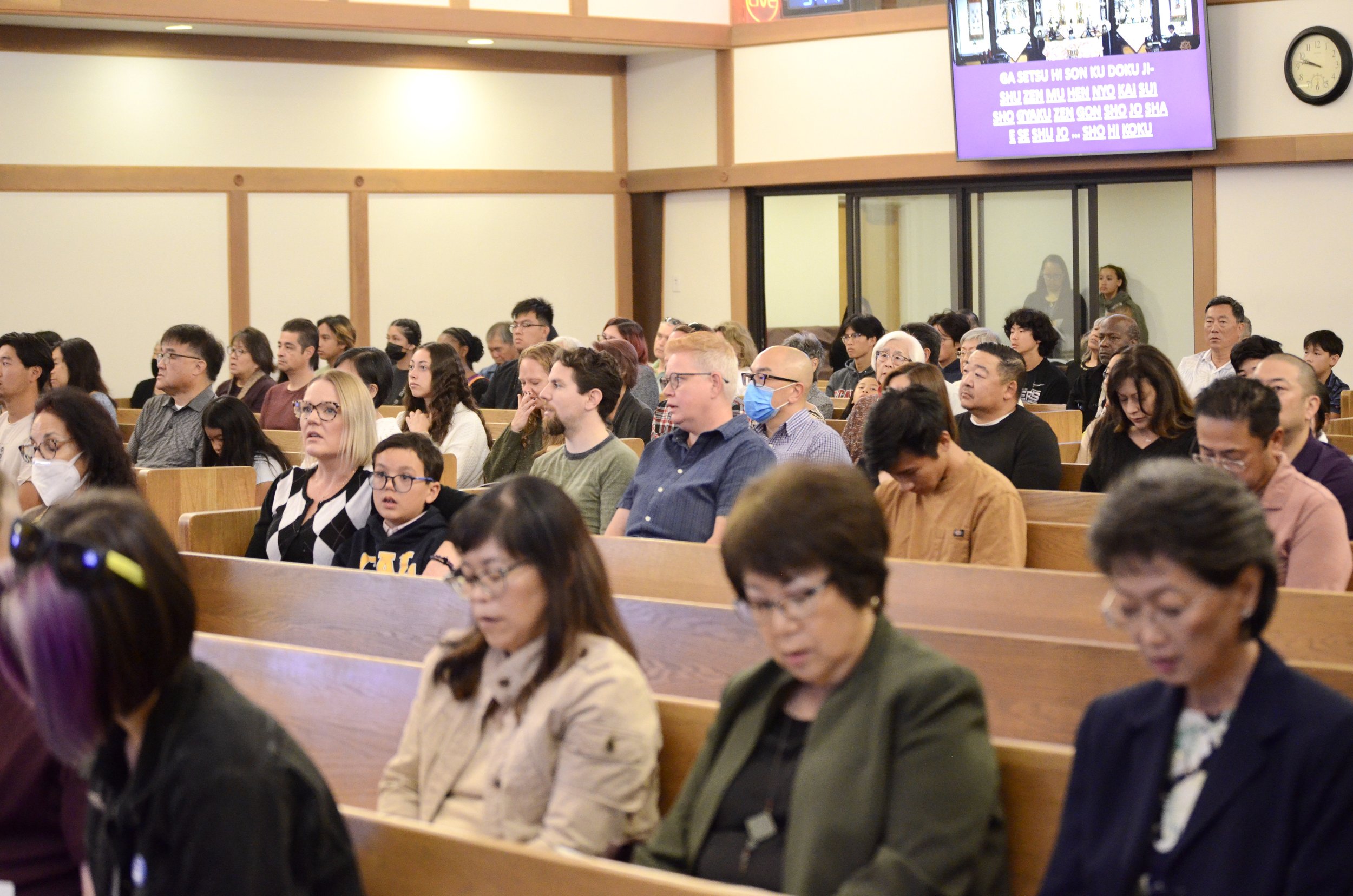
Discover the Dharma
The word Dharma refers to the teachings of the Buddha that we continue to practice in our lives today. Whether you’re new to Buddhism or have been practicing for years, you’ll discover that keeping an open mind will be the first step to understanding the simplicities and difficulties of Buddhist teachings.
What is Jodo Shinshu Buddhism?
Here at the Buddhist Church of Sacramento, we practice the teachings of Jodo Shinshu Buddhism, a sect of Buddhism founded by Shinran Shonin over 800 years ago. Jodo Shinshu is a path of self-reflection and gratitude through receiving the working of the wisdom and compassion of Amida Buddha. For further reading, we recommend visiting the following Nishi Hongwanji website page: The Essentials of Jodo Shinshu - My Path
The Three Treasures
-
Amida Buddha is the Buddha of infinite wisdom and compassion, or infinite “understanding” and “caring.” Amida Buddha is the central figure of reverence. Amida is not a God or a Supernatural Being. Buddha means, “One who is awake.” There is not only one Buddha in the world. We don’t pray to Amida for help, but we reflect upon Amida’s infinite wisdom and compassion to help guide our lives.
-
The Dharma is the Buddha’s teachings. These teachings are not mystical or based around a higher power; they are truths of life that existed long before the Buddha first shared them with a Sangha (see below). Because these truths are universal to everyone, they are naturally meant to be questioned, tested, and understood over time. The Dharma is not unique to any individual or culture or time, and is true for everyone, everywhere, at any time. The goal of every Buddhist is to live their life mindfully, with their eyes open to see and experience the world as it truly is. To read more about core teaching of Jodo Shinshu Buddhism, we invite you to review the Core Teachings section.
-
The Sangha are all the temple members who come together to learn about the Dharma. The Sangha gives meaning to the temple and refers to the very first group of individuals who listened to the Buddha share his teachings. Similar to a congregation, the Sangha is the community of people that give the temple meaning and purpose.
The Four Noble Truths
-
In our Dharma school classes, where we teach our youngest Sangha members about the teachings of the Buddha, we often say that the first of the Four Noble Truths is that “Life is Suffering”.
With this modern saying, many immediately interpret this first truth to be pessimistic, yet suffering, or duhkha, means more specifically “not getting what one wants”. Each of us experiences this truth of dukkha when we feel frustration, unrest, agitation, anxiety, stress, pain, or simply, suffering.
The four basic duhkha of human life are birth, illness, old age, and death. These duhkha are universally experienced as:
Separation from loved ones, whether in life or death
Having to live with other people we dislike, whether at home or work
Unfulfillment of one’s desires
The physical and mental limitations of the human body
-
The cause of our suffering is ultimately because of our own desires. More simply, when we want things that we cannot have or that are impossible to receive, we cause ourselves pain, annoyance, anger, or frustration.
In human life, it’s only natural to want, especially when it comes to desiring things that may seemingly improve our well-being or happiness in life. But the truth of life is that we cannot always get what we desire and that is why we experience suffering.
-
Fortunately, there is a way we can end suffering in our lives, which is also known as attaining Enlightenment. To do so, we must put an end to our desires through a deeper understanding of ourselves and our egos. This realization is not easy or overcome all at once, which is why the fourth Noble Truth offers us a lifelong guide to attaining Enlightenment.
-
To live a life free of suffering, we can follow the teachings of the Noble Eightfold Path. The Eightfold Path consists of the following eight stages in order: Right View, Right Thought, Right Speech, Right Behavior, Right Livelihood, Right Effort, Right Mindfulness, and Right Concentration.
Although simple in concept, it is difficult for anyone to maintain the “Right” lifestyle at every moment of their lives. While ending all of the suffering in your life as soon as possible seems ideal, this too is a desire that can blind you from actually taking the steps to change your behavior, thoughts, habits, and actions that lead you on this path.
It’s important to understand that suffering does not suddenly disappear if you lead one lifestyle or another, but that these truths allow you to change your mindset over time. If we continue to follow the Eightfold Path in our everyday life, we will soon encounter situations and moments that would have brought us suffering previously and find that we have overcome them through this gradual, active change in our actions and thoughts.
Core Teachings
-
One of the most fundamental teachings of Buddhism is the concept of impermanence. In all of our lives, the only constant is change. When we understand impermanence, we accept that nothing in life can stay the same forever. With this in mind, we come to learn how precious everything is in our lives and how to express gratitude for even the briefest of happy moments. On the other hand, when we face great hardship and pain in our lives, the truth of impermanence reminds us that these difficult times will not last forever. Enduring these challenges gives us opportunities to grow, learn, and appreciate every moment of our lives.
-
Buddhism teaches us that all things are connected. Some connections are more obvious and direct in our lives, such as our parents, children, friends and loved ones, but others are less obvious: a cashier at your local grocery store or a family living halfway across the world, enduring a war in their own country. No matter how far away or seemingly unrelated something is, the truth of interdependence is that everyone in the world is all interconnected in some way. No single person exists without the help and existence of others. No single action or thought of our own is done without a connection to someone else. When this truth is realized, we become so much more aware of how our thoughts, our speech, and our actions affect everything in the world. Everything we do matters and anything we do can create an impact, big or small.
-
A common misconception, that even the historical Buddha himself made, is that in order to attain Enlightenment, or a life free of suffering, we must deprive and starve ourselves of nourishment, happiness, or any sort of pleasure. The Middle Path reminds us that there are healthy, reasonable ways to attain Enlightenment that do not require giving up all of our worldly possessions or indulging in every single one of our desires without a second thought.
An important reminder about the Middle Path is that there is no one “right” or “perfect” Middle Path to take in life. Each of us has a different path that exists between these two extremes and our goal in life is to discover what that is. Next time you are between two extremes, such as obsessing over the past or only planning for the future, seek the Middle Path and try to enjoy the present as you are living it.
-
While it is very important to learn from our past and plan for our future, constantly doing so at the expense of the present would only cause us suffering in the form of guilt, stress, or anxiety.
Once we grasp the truth of impermanence that nothing in life will ever stay the same, it is only natural that we become more mindful of our present life. Each moment must be appreciated, embraced, and lived to its fullest extent whenever possible. It’s only natural to get caught up in our future plans or past mistakes, but if we can live in the moment whenever we remember to, we will be able to experience and enjoy our life more fully. This appreciation for our present lives and experiences, in turn, leads us to live a Life of Gratitude.
-
In realizing all of these truths about life, it is only natural to gain a deep sense of gratitude for all the countless causes and conditions that allow us to live our lives. In understanding impermanence, we realize how precious and temporary everything is. Therefore, we strive to spend less time complaining about our lives and more time living it and appreciating it. This feeling of true gratitude, whether for something, someone, or life itself, overcomes any other feelings of greed, anger, or selfishness. Thus, when we live a life of gratitude, we also experience less suffering.
The Dharma in our own words
Take the next step in your learning
Buddhist Education Classes
Watch a Dharma Talk
Attend a Service
What can I expect at a Dharma service?
If you have more questions like this one, we have answers. Attending a service at a new church or temple can sometimes feel out of your comfort zone. We’re always excited to meet new people and hope that you’re looking forward to your first visit as much as we are. Check out our Visit page for a sneak peek of our Sundays.








